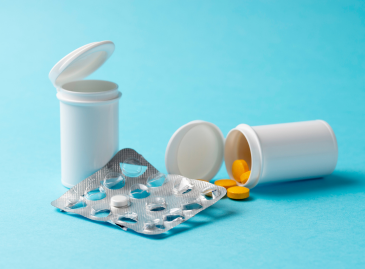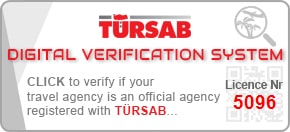
Stimulant Addiction: Causes, Symptoms, Effective Treatment
Stimulants are psychoactive drugs. They cause short-term improvement in your physical and mental functions. They affect your central nervous system. People usually use stimulants for high concentration, high energy, and attention levels. These drugs are often abused for their performance enhancement and euphoric effects.
There are dozens of types of stimulants, and all of them can eventually lead you to addiction. It is possible to develop an addiction to stimulants with prescription drugs. Also, the use of illegal drugs such as cocaine, meth, or ecstasy is every day in drug addiction cases. Stimulants can be swallowed, snorted, or injected.
There are dozens of types of stimulants, and all of them can eventually lead you to addiction. It is possible to develop an addiction to stimulants with prescription drugs. Also, the use of illegal drugs such as cocaine, meth, or ecstasy is every day in drug addiction cases. Stimulants can be swallowed, snorted, or injected.
Signs and Symptoms of Stimulants
Many people use stimulants to improve performance, not to get high. Especially athletes and students often resort to prescription stimulants to beat their competitors.
Symptoms of stimulant use include:
- Euphoria
- Decreased appetite
- Talkativeness
- High energy
- Increased concentration
- Insomnia
- Agitation
- Increased heart rate
- Increased blood pressure
Dopamine is the chemical in our brain that triggers pleasure. Stimulants produce excessive amounts of dopamine. When you take stimulants regularly, your brain can not produce average amounts. Thus, your brain is conditioned to receive dopamine only from the stimulus. You can stop taking stimulants. Then, you begin to experience withdrawal symptoms. Therefore, you are obliged to use the drug to feel normal.
Addiction to Stimulants
For those who are addicted to prescription or illegal stimulants, the drugs are the top priority. They ignore the effects and negative consequences of addiction. Stimulants can cause serious harm to your health in the short or long term.
Symptoms of stimulant addiction include:
- Inability to quit stimulants
- Lack of normal functioning
- Loss of appetite
- Inability to sleep
- Increasing the dose for the same effect
- Withdrawal symptoms
Stimulant addiction causes you to have withdrawal symptoms, such as depression, anxiety, sensitivity to touch, and sleep disorders.
Types of Stimulants
We can classify the types of stimulants into two groups pr: description and illegal drugs. There are chemical differences between these drugs. However, the consequences of abuse are the same.
Firstly, we will talk about illegal stimulants:
Cocaine
It is the most well-known stimulant in the world. It is produced from the "coca" plant grown in South America. Moreover, it is highly addictive. Cocaine usually comes in the form of a fine white powder. Also, "crack", a crystallized rock version, is standard. Cocaine users commonly snort the cocaine and smoke the crack.
There are symptoms of cocaine use, such as excitement, runny or bleeding nose, dilated pupils, and weight loss. Cocaine is highly addictive, even if you want to try it once. You can quickly start to abuse the drug. Also, you quickly begin to develop tolerance and become addicted to cocaine.
Long-term use causes you to experience severe loss of appetite and sleep deprivation. Additionally, binging on cocaine makes you go days without eating or sleeping. Users often use other drugs, along with cocaine. Alcohol is the most common one. Also, "speedball", a combination of cocaine with heroin, is quite common.
Methamphetamine
Methamphetamine is one of the most highly addictive drugs. It is popularly referred to as "meth". Users take meth in crystal or powder form by snorting, injecting, or smoking. It became common because of its initial euphoric feel—however, bad feelings, anger, and fear attack after the impact wears off.
Meth can cause your body temperature to increase enough for you to faint. Also, it forces you to itch severely. It weakens your teeth and causes cracks. Moreover, you experience dry mouth (meth mouth) and cognitive problems. Using meth can easily cause you to overdose. This can cause extreme physical issues or even death.
MDMA (Ecstasy/Molly)
These are synthetic and psychoactive drugs with similarities to amphetamine. They come in coloured pills with logos, capsules, powder, and liquid forms. Users take these stimulants by mouth or snorting.
In the initial use, MDMA elevates your sensory perceptions and increases your heart rate and blood pressure. As a result, you may see side effects such as muscle tension, nausea, sweating, chills, and excessive body temperature. Long-term use causes you to be confused and depressed. You begin to have attention and memory problems. Also, you may have insomnia, anxiety, impulsiveness, and decreased sexual drive.
Additionally, most users take MDMA with alcohol.
Prescription Stimulants
Besides illegal drugs, prescription stimulants can cause serious addiction problems. Doctors usually prescribe these drugs to treat attention deficit hyperactivity disorder (ADHD). However, many people without ADHD use these drugs and become addicted. These drugs are pretty standard, especially among students and athletes.
Prescription stimulants are:
- Adderall
- Ritalin
- Dexedrine
- Concerta
- Desoxyn
- Ephedrine
Doctors prescribe all of these drugs primarily for the treatment of ADHD.
Long-term use causes you to be depressed, anxious, aggressive, and manic. Also, you may have cardiovascular complications, nausea, insomnia, or hypertension. Decreased growth in children and adolescents also may occur.
Causes and Risk Factors
Addiction to stimulant drugs can occur in different ways. If you have ADHD, you may gradually increase the dose of stimulant drugs. Therefore, you become dependent on stimulants. Students often become addicted to these drugs due to their desire for academic success. Also, if you have chronic depression or other mental disorders, you may turn to prescription stimulants to get relief. However, you eventually become dependent on the stimulant and even give up the thought of quitting.
The situations pose a risk for prescription stimulant addiction:
- Chronic use of stimulants
- Increasing doses over time
- Family history of mental disorder
- ADHD
Mental disorders such as bipolar disorder or depression may cause stimulant addiction. These disorders lower your mental state regularly. Thus, you feel the need to improve your state of mind artificially.
Treatment of Stimulants
There are various treatment methods for stimulant addiction. All of them are adjustable to your specific needs.
Detoxification
Generally, the treatment of long-term stimulant use begins with detox. Doctors watch you 24 hours a day as they cleanse your body of stimulants. Therefore, if any complications occur, they can intervene quickly. This may happen in a professional clinic or hospital. Also, they may prescribe anti-anxiety or anti-nausea medications. Their goal is to make you comfortable through detox. Additionally, they provide proper nutrition, hydration, and encouragement. After detox, they begin to improve your mental health.
Cognitive Behavioral Therapy
Generally, the treatment of long-term stimulant use begins with detox. Doctors watch you 24 hours a day as they cleanse your body of stimulants. Therefore, if any complications occur, they can intervene quickly. This may happen in a professional clinic or hospital. Also, they may prescribe anti-anxiety or anti-nausea medications. Their goal is to make you comfortable through detox. Additionally, they provide proper nutrition, hydration, and encouragement. After detox, they begin to improve your mental health.
Cognitive Behavioral Therapy
Cognitive-behavioral therapy (CBT) is a proven treatment method, especially in cocaine addiction. In CBT, you identify the thought patterns that lead to stimulant abuse. Then, you work to change these thoughts. As a result, your behaviour changes. Next, you learn coping mechanisms that will help you avoid triggers.
Contingency Management
A therapy method based on rewarding desired behaviours. It is effective in the treatment of stimulant addiction. You get rewards for the number of therapy sessions you attend or the time you stay sober. Thus, therapy helps you to reinforce correct behaviours.
The Matrix Model
It is another frequently used therapy method in the treatment of stimulant addiction. The goal is to improve your self-respect and encourage you to change your behaviour. As a result, you gain self-confidence and the tools to battle addiction.
As with all drug addiction treatments, doctors plan treatment based on your needs. Besides, no drug addiction treatment can suit everyone. Therefore, do not hesitate to explain your personal needs to your doctors.
Conclusion
If you are struggling with stimulant addiction, you should seek professional help immediately. Also, if you watch a loved one struggle, convince them to seek help. As with any drug addiction, stimulant addiction is very likely to ruin your life. The "Nothing will happen to me" approach does not protect you from future harm. Because when "that thing" happens, your life can change.
Drug Addiction Treatment Price Turkey






